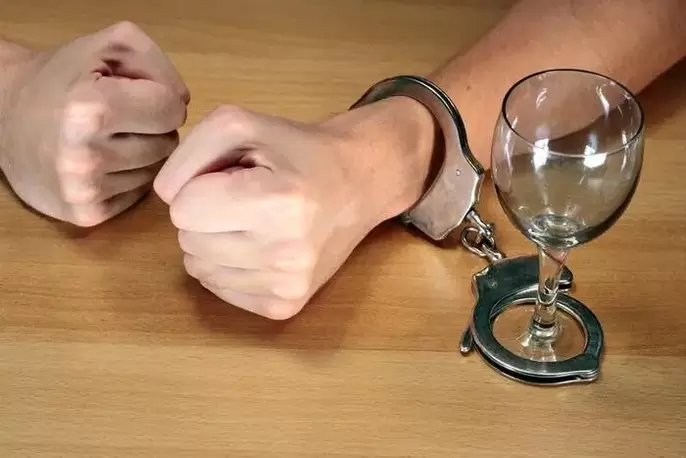If a loved one is an alcoholic, this is a serious problem for the whole family. The situation is complicated by the fact that some people, even if they get drunk regularly, do not consider themselves ill. How to help a person suffering from alcoholism. Is it possible to cure a relative who drinks at home. And most importantly, how to deal with the fact that the drunk denied alcohol dependence.
How to help an alcoholic stop drinking
First of all, the patient must be aware that the disease exists, it must be treated. You have to want to get rid of drunkenness. Motivation is the main driver in this situation. Even the availability of a large number of funds, opportunities, good conditions will not lead to the desired result if there is no goal and the right attitude.
Here are some basic steps you can take to reduce your hunger for alcohol:
- Acceptance of the disease. As soon as the alcoholic stops denying the existence of addiction, it will be easier for him to undergo treatment, he will quickly get rid of the disease.
- Suppression of the desire to drink, control. We need to find an alternative to drinking. As soon as the thought of taking a new dose of alcohol comes up, you need to move on to some kind of action (running, reading, walking, etc. ).
- Contrasting shower 2-3 per day. It will help strengthen blood vessels, reduce appetite for alcohol.
- Drink plenty of water (at least 10 glasses of water a day).
- Abandonment of the old life. It is necessary to avoid people, places related to alcoholic past.
As soon as the patient starts drinking less alcohol, he should undergo a complete diagnosis of the body. After that you can move on to recovery activities (vitamin therapy, light exercise, walking, etc. ).
How to help a drinker quit
There is no universal way to help. All alcoholics are different and everyone's environment will be different. But there are some ways to combat addiction.
You should start treatment with a dropper that purifies the blood. You can call a doctor who will perform all the necessary manipulations. Then the whole course of treatment is planned. The main thing is that the patient wants to be treated. Then a therapy scheme is built. Or you will have to change your approach to the problem if you do not want to get rid of the addiction. At each stage, the patient will need the help of relatives, especially if he is not in the mood for treatment.
Basic recommendations for families of alcoholics:
- Transfer a drinking relative to self-service. Sooner or later you will have to deal with cooking, laundry, cleaning.
- Spend your free time on hobbies, forgetting about feats in the name of a loved one.
- Do not give in to alcohol, do not give in to the provocations of an alcoholic. He has to get used to the new situation in the family.
- Not responsible for the actions of a drinking relative. He must decide all claims, accusations, disputes himself.
You can only help those who are waiting for this, open to change. You don't have to spend your whole life saving an alcoholic.
At home

Only the initial stage of alcoholism can be cured at home. Further stages of the disease include severe mental and physical disorders that require medical intervention.
It is important to follow the rules of home treatment:
- Make your own decision to give up bad habits. Mandatory therapy is ineffective.
- Keep complete calm, no stress that provokes breakdowns.
- Avoid as much as possible any reminders of a previous life (drinking friends, places to drink alcohol).
- Give up alcohol completely.
- Unite with loved ones against a common problem.
- Take medication prescribed by your doctor.
- Strengthening the therapeutic effect of folk remedies.
Medicines are prescribed only by a doctor. Self-medication can only make the disease worse. And decoctions, infusions according to recipes of alternative medicine will enhance the positive effect, will relieve the symptoms of the disease. They are most effective in intoxication with alcohol breakdown products.
Unfortunately, according to statistics, it is not always possible to help an alcoholic with home treatment. But there are still many positive results. The main thing is not to give up, to follow all the instructions, to take steps in the right direction.
Disadvantages of home treatment:
- high probability of damage;
- lack of experience in treatment, professional psychological support;
- passivity, patient apathy, loss of motivation during long-term therapy.
To avoid negative consequences, serious complications, it is necessary to overcome shame, embarrassment, prejudice and other obstacles and still seek professional help. And now he will determine the severity of the disease, if necessary, recommend inpatient treatment or approve rehabilitation at home.
Stationary

The treatment in the hospital is anonymous. So you should not hide from the problems, to be ashamed. It is better to immediately seek help from specialists: narcologist, psychiatrist, psychotherapist, family psychologist.
Of particular importance is the right attitude to treatment. Alcoholism is a chronic disease that will not go away completely. Only the strength of will, the desire to change your life will help a person to be in remission for a long time without returning to exacerbations of the disease.
Advantages of inpatient treatment:
- isolation from the influence of external negative factors;
- lack of access to alcoholic beverages;
- the possibility of a complete diagnosis;
- control over the treatment process, if necessary, timely changes;
- appropriate conditions, unlimited possibilities for complex therapy.
Severe cases of the disease are treated only in hospital.
In a medical institution it is easier and faster to break up after giving up alcohol. The duration of treatment is at least 7 days.
Stages of therapy:
- Eliminate toxins. The patient is prescribed droppers, tests are performed regularly and diagnostic measures are performed.
- Based on the results of the diagnosis, the narcologist builds a treatment program, including the necessary specialists in the process.
- Medical treatment, consultations with specialists with the participation of the patient's relatives.
- Further follow-up of the patient after the course of treatment.
The success of the therapy lies in a set of measures. Anonymous Hospital is the best place for their implementation.
How to help a person stop drinking if he does not want to

Such patients themselves will never admit that they are experiencing difficulties and will also not agree that they are addicted to alcohol. For treatment, such a denial is a major barrier, an obstacle to recovery. If an alcoholic does not want to be treated, even the most experienced professionals will not help him. But even in this situation, there are ways to help the patient stop drinking:
> zxtable border = "1" cellpadding = "0" >How to convince an alcoholic to go for treatment? Main recommendations:
- Avoid conflict situations, criticism of the addict.
- Talk about your emotions caused by the situation, but do not blame.
- Help find interesting alternative activities.
- Explain that authority in the inner circle is lost.
- Motivate the patient with responsibility, love of life.
- Explain the importance of seeking professional help.
Belief in the power of your words, the success of actions will help you achieve a positive result.































